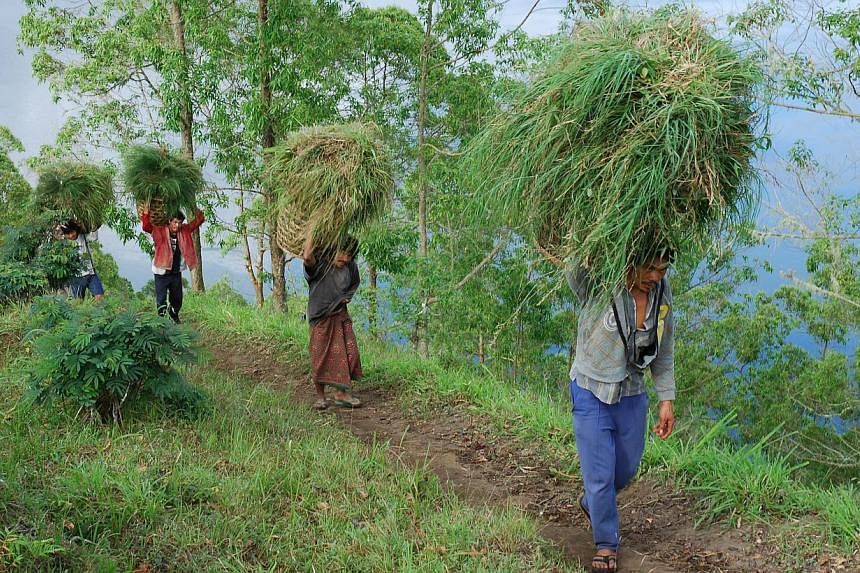Mr Daniel Elber was never a typical banker. Although responsible for over 1,200 employees at a major bank in Zurich, he repeatedly took time out - to trek in the Andes, explore Borneo and cross Tibet. But it still came as a surprise to his friends when the 50-year-old decided to start a new life in Bali 10 years ago.

The decision was motivated by a woman. Mr Elber noticed Ms Ketut and her daughter Komang when he was jogging across the mountains from Muntigunung in northern Bali to Lake Batur. He had seen her and other women begging in the streets of Ubud several days earlier. Now, they were trudging home again with their meagre collection and a bag of rice.
Mr Elber could not stop thinking about the encounter. He kept wondering why women have to beg although they live in a paradise on earth surrounded by such luxuriant vegetation and a flourishing tourist industry. It just did not make sense.
Mr Elber did some research and found out that the women come from the 36 hamlets that constitute Muntigunung and that there was no means of making a livelihood in this arid region. He kept wondering what these women could do instead.
That brought another woman into play: Ms Karin Vogt. Specialising in marketing, she had just organised the European launch of a major United States coffee chain and was visiting Mr Elber in Bali.
She said: "The idea is simple. Let's change the direction."
Instead of travelling from their villages to the tourist centres, the women would guide people from the tourist centres to their villages. That was the beginning of Muntigunung Trekking.
Since then, 50 women from Muntigunung have become part-time guides. They accompany tourists on day tours to their villages. The tours cost about 80 Swiss francs (S$108), some of which go directly to the former peasant women and their villages.
"At first they hardly dared look the tourists in the eye," says Ms Vogt. That has changed over time: In broken English, they now proudly tell tourists about their villages.
Mr Elber and his team also started looking for projects that rely on local resources, such as tea from Hibiscus blossoms, roasted cashew nuts, woven baskets and, most recently, hammocks. He secured the cooperation of the Bali Hotel Association, which unites Bali's top hotels, to buy the products and offer them to their guests. The result: 220 jobs.
As Ms Vogt puts it: "Tour guests become part of our project through first-hand experience of the conditions under which people live in this region."
The trekking has also become the best advertising for the Muntigunung development project. Ms Vogt is convinced the Muntigunung model can be applied in other regions as well. "It is possible to build bridges of this kind wherever people live in great poverty near affluent tourist centres."
In the meantime, the firm running the trekking operations has handed it over to the local people.
Today, Ms Ketut still takes tourists to her village where small baskets are woven from lontar palm leaves. She takes pride in being able to work for her livelihood and in setting a good example for her daughter, who is in school.

